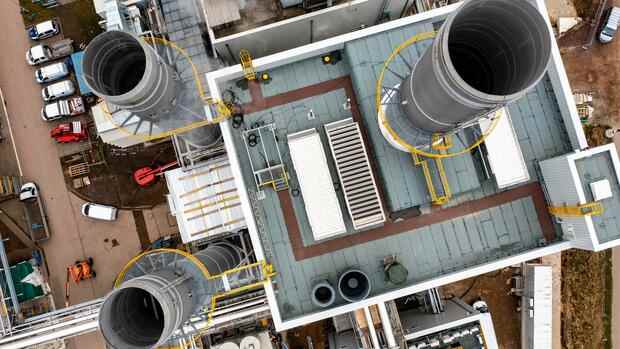The pictures of the atrocities in Bucha will unleash a power that even the federal government can hardly resist. The massacre brings back memories of the Srebrenica murders in 1995. And if such harrowing images come from one village, it is not unlikely that there will be equally harrowing ones to be seen from other cities.
The war in Ukraine has thus reached a new level of escalation, to which the West must find a quick and decisive response. Now further sanctions are to follow: This time it hits Putin confidants. It should be about technical goods and the financial market.
You can rub your eyes in amazement and ask: Why weren’t these sanctions imposed long ago? In any case, a few new sanctions against Putin friends will not be enough in the new situation to defy the Kremlin boss and make it clear that he has crossed a red line.
For the West – and especially for Germany – there is no longer a comfort zone. The more war atrocities become known, the tougher the Kremlin will have to be.
Top jobs of the day
Find the best jobs now and
be notified by email.
The EU cannot accept the killing of civilians on European soil. It owes that to the people of Ukraine, whom the West has made dream of NATO membership. And the EU owes it to its own citizens.
>> Read here: All developments in the Ukraine war in the Newsblog
International pressure on Germany
The West now has to prove that the more difficult the decisions become, the more difficult the decisions become, the more the unity it swears by will not break down. The first thing that NATO must do is deliver more weapons to Ukraine. Germany can no longer slow down there. Nevertheless, the tightrope walk must be managed to supply more weapons without becoming a direct party to the war.
And above all: an energy embargo is pushing with force onto the agenda. Germany has so far resisted an import ban on gas, coal and oil from Russia. But this attitude is becoming increasingly difficult to maintain in view of the pictures from Butscha.
The international pressure is too great, too great the urging of the European partners, who, unlike Germany, were not so naïve as to allow the Russians to buy into their own country’s critical energy infrastructure or to become a quasi-monopoly in the energy supply. Who rightly point out that Germany, despite warnings, maneuvered itself into this dependency all by itself. And now no one else can pay the price for it.
The Federal Government will therefore have to act on the embargo question if it does not want to suffer a loss of face and if its formula of the “turn of the era” is not to be just an empty phrase. Since the beginning of the war, the EU has transferred 20 billion euros to Russia for energy imports.
Further financing of Putin’s war becomes more questionable with each passing day the conflict goes on. And contrary to what the SPD suggests, Putin can do something with the money.
Crash of the German economy as a great danger
The question is therefore no longer whether, but when and in what form an energy embargo will come. In a first step, the EU could at least impose an embargo on coal, and in a second step on oil; a ban on gas imports must be discussed.
But the federal government should only continue to take this step if it really weakens Putin and can end the war and massacres like in Bucha. If this is not the case, the collapse of the German economy would be too high a price to pay.
Because nobody should be mistaken: an embargo would have more far-reaching consequences for the domestic economy than many can imagine. The fact that many scientists consider an embargo to be manageable has put the federal government under a lot of pressure.
Even if some economists have exchanged the scientist’s jacket for that of the part-time activist, a Chancellor should not belittle unwelcome studies like Olaf Scholz did.
Federal government before a plague or cholera election
But the chancellor is right about the matter: the forecasts are highly uncertain. No one accurately surveys the cascading effects in the economy of an embargo. It would be correspondingly risky to derive such a far-reaching political decision from the studies.
>> Read about this: What do Putin get from Russia’s energy revenues? In any case, more than the chancellor claims
Likewise, the reference to the corona crisis, which the country has mastered well, does not work either. Now it is not just about a temporary closure of the service sector, but about industry, the heart of the German economy, which could suffer irreparable damage. Unlike in the corona crisis, no rescue package is large enough to absorb the entire industry.
The federal government is therefore faced with a choice between plague and cholera: if it delays an embargo, it will be pretty much alone in Europe and will continue to be accused of financing Putin’s war. If it imposes an embargo, it will jeopardize the future of large parts of domestic industry.
Political mistakes of the past take revenge after all. Germany is learning this lesson bitterly.
More: Kremlin launches disinformation campaign on Bucha attack
